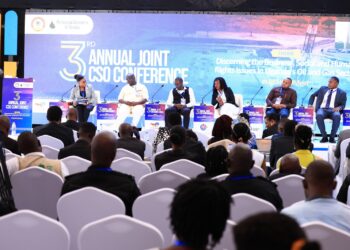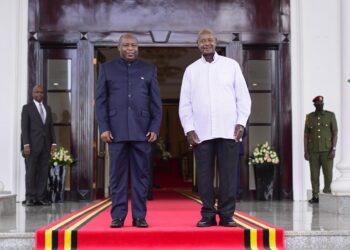By THE NEW YORK TIMES
The United States defended Israel at the United Nations’ highest court on Wednesday, arguing that calls for the country to withdraw from the Palestinian territories fail to take into consideration its “very real security needs.”
Richard C. Visek, the acting legal adviser at the U.S. State Department, told a 15-judge panel at the International Court of Justice in The Hague, that only a two-state solution could bring about lasting peace between Israel and the Palestinians.
The court is hearing six days of arguments over Israel’s occupation of Palestinian-majority territories, including the West Bank and East Jerusalem, which has been the subject of years of debates and resolutions at the United Nations. The hearings — involving more than 50 countries, a level of participation never before seen at the court — were called long before Israel went to war against Hamas in Gaza, but have become part of a concerted global effort to stop the conflict and examine the legality of Israel’s policies toward the Palestinians.
Israel has said it would not participate in the hearings, and sent a letter to the court last year arguing that the focus of the proceedings failed to “recognize Israel’s right and duty to protect its citizens” or its right to security.
The United States has strongly defended Israel during the war, including on Tuesday, when it cast the lone veto against a U.N. Security Council resolution that called for an immediate cease-fire, saying it would disrupt efforts to free hostages held in Gaza.
On Wednesday, Mr. Visek asked the court to uphold the “established framework” for a two-state solution that he said U.N. bodies have agreed to — one that is contingent on a “broader end to belligerence” against Israel — rather than heed calls by other nations for Israel’s “unilateral and unconditional withdrawal” from occupied territories.
The Oct. 7 attacks on Israel were a reminder of the security threats facing Israel, Mr. Visek said, “and they persist.”
The court, which normally hears staid disputes among nations, has lately become a venue for countries to oppose Israel. Last month, South Africa argued at the court that Israel was committing genocide against Palestinians in Gaza — a charge strongly rejected by Israel. The judges have not ruled on that claim, but issued an interim order for Israel to take steps to prevent genocide in Gaza, giving it until next week to report back on how it is doing so.
On Tuesday, South Africa forcefully condemned Israel’s policies against Palestinians, calling them “a more extreme form of apartheid,” the race-based system of laws that deprived Black South Africans for decades. Palestinians “continue to be subjected to discriminating land zoning and planning policies, to punitive house demolitions and violent incursions into their villages, towns and cities,” South Africa’s ambassador to the Netherlands, Vusi Madonsela, told the court.
Israel has long rejected accusations that it operates an apartheid system, calling such allegations a slur and pointing to what it says is a history of being singled out for condemnation by U.N. bodies and tribunals.
The United States has remained Israel’s staunchest defender internationally. But the Biden administration, under increasing pressure from parts of the Democratic Party, has also shown signs of impatience with Israel’s conduct of the war, the rising toll in Gaza and the plight of Palestinians under Israeli occupation. Gazan health officials say that more than 29,000 people have been killed in Israel’s airstrikes and ground invasion of Gaza, making it by far the deadliest Israeli-Palestinian conflict since Israel’s founding in 1945.
President Biden this month said that Israel’s military response in Gaza — which began after Hamas’s Oct. 7 attacks killed 1,200 people, Israeli officials say — had been “over the top” and that the immense civilian suffering had “got to stop.” The remarks came days after Mr. Biden imposed broad financial sanctions against four Israeli men over violent attacks against Palestinians in the West Bank.
After the hearings, which are scheduled to conclude on Monday, the court will give an advisory opinion, a decision that is expected to take several months. The opinion will be nonbinding.







Discussion about this post